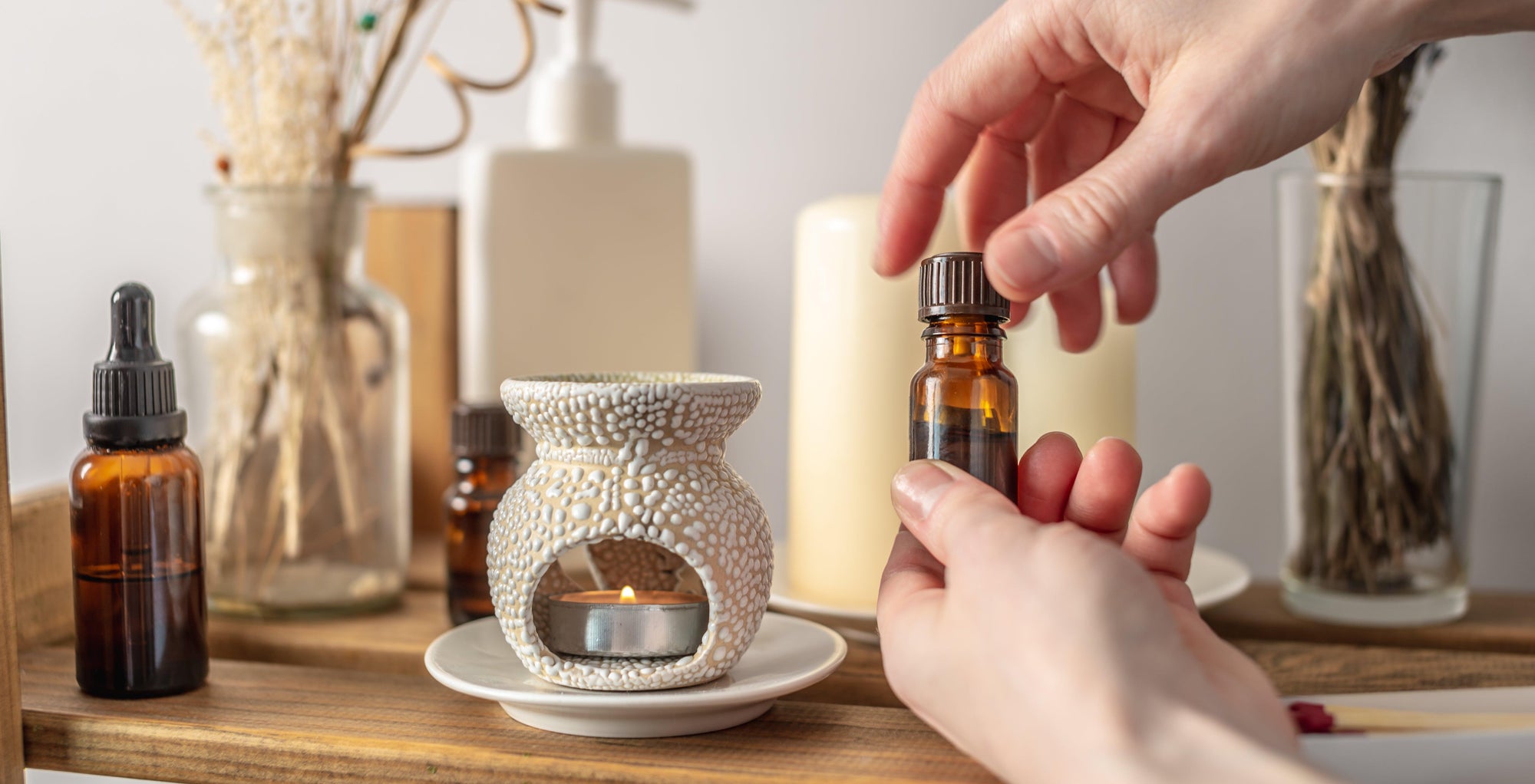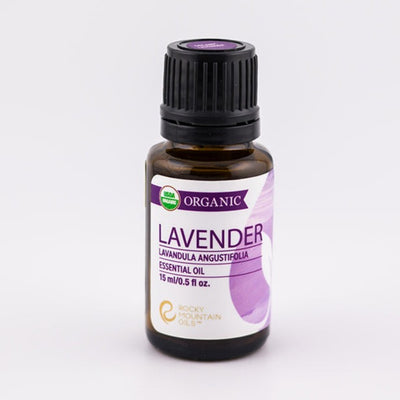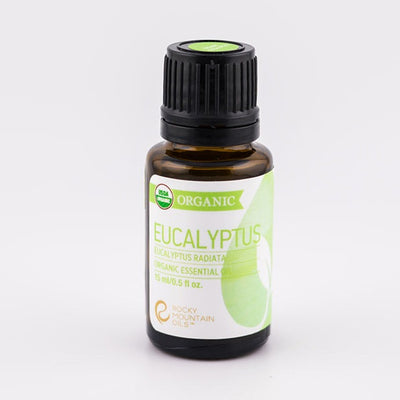Can I Put Essential Oils In My Humidifier?: Intriguing Ways to Enhance Your Ambiance
Ah, the age-old question of whether to merge the therapeutic vibes of essential oils with the gentle mist of humidifiers. Well, let’s untangle this riddle and see where we land.
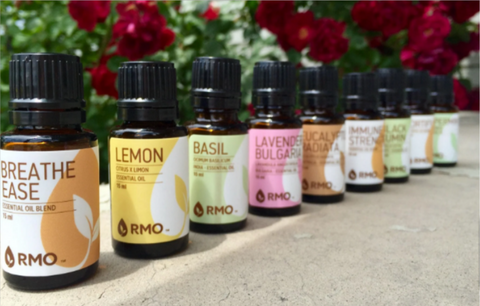
Can I Put Essential Oils in My Humidifier? Understanding the Basics
Essential oils, nature's aromatic treasures, have been used since ancient times for their therapeutic properties. But can we team them up with our trusty humidifiers? The answer is more than a simple yes or no. It depends on various factors, including the humidifier type and the essential oil quality.
Types of Humidifiers
From ultrasonic to evaporative, there's a vast ocean of humidifiers. While some are sturdy soldiers who can handle the intense aroma of essential oils, others might choke or sputter, potentially shortening their lifespan.
Essential Oils and Their Properties
Lavender, eucalyptus, peppermint – oh my! Each oil offers a unique aroma and a plethora of benefits. But remember, not all oils are created equal. Some might be too strong for your humidifier to handle.
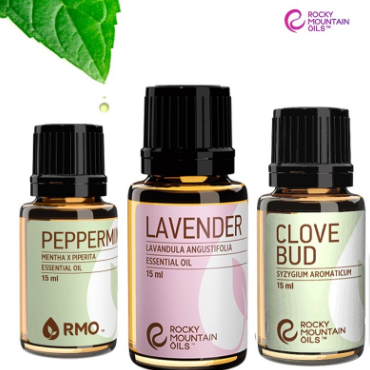
Benefits of Using Essential Oils in Humidifiers
Improved Air Quality
Merging essential oils with humidifiers can add an extra layer of freshness, getting rid of that stale indoor air. Plus, they act as natural air purifiers!
Aromatherapy and Mood Enhancement
Feeling blue? A dash of citrus oils in your humidifier might be the pick-me-up you need. Essential oils are known mood enhancers, promoting calmness and well-being.
Combating Common Ailments
From respiratory relief provided by eucalyptus to the soothing properties of chamomile for a troubled mind, essential oils are often hailed as natural remedies.
Potential Drawbacks
Possible Damage to Humidifiers
The oily nature of these aromatic elixirs might not play nice with your humidifier's mechanics. It's crucial to know if your device is essential oil-friendly.
Overpowering Aroma
Go easy! Too much of a good thing can quickly turn overpowering. Moderation is key.
Allergies or Sensitivities
It’s always best to do a patch test or check for allergies. Some oils might be a tad too strong for sensitive noses.
Safety Measures
Choosing the Right Essential Oils
Opt for pure, therapeutic-grade oils. Beware of synthetic ones that might do more harm than good.
Proper Cleaning and Maintenance
After every aromatic session, ensure your humidifier gets the TLC it deserves. Regular cleaning prevents residue buildup.
Monitoring Duration of Diffusion
Running your humidifier with oils for prolonged periods might not be the best idea. Give it regular breaks.
Best Essential Oils for Humidifiers
Lavender: For Relaxation
Nothing beats the calmness offered by lavender. Its mild nature makes it perfect for humidifiers.
Alternative Methods for Diffusing Oils
Dedicated Oil Diffusers
Perhaps consider an oil diffuser? These are specifically designed to handle essential oils, ensuring maximum benefits.
Scented Candles and Sachets
For a light, non-electric touch of aroma, scented candles and sachets might be your best bet.
Personal Experiences and Testimonials
A Case of Tranquil Nights
"My nights were restless until I added lavender oil to my humidifier. The soothing aroma ushered in peaceful slumbers."
Fighting Off the Winter Blues
"A drop of citrus oil in my humidifier, and I felt an immediate shift in my mood. It was like a burst of sunshine in winter."
Expert Recommendations
Renowned Brands
Brands like Young Living and doTERRA offer top-notch oils perfect for humidifiers.
Quantity Guidelines
Remember, it's not a soup! A few drops usually do the trick.
Humidifiers Versus Essential Oil Diffusers
Both humidifiers and essential oil diffusers have become popular household appliances, particularly among those interested in enhancing the air quality in their homes. While these devices may look somewhat similar, they serve different primary purposes. This article dives deep into the distinctions, the pros and cons, and the ideal uses for each.
Understanding the Basics
- Humidifiers: As the name suggests, these devices increase the humidity level in a room by adding moisture to the air. They are particularly helpful in dry climates or during colder months when indoor heating systems can reduce the moisture content in the air.
- Essential Oil Diffusers: These devices are designed to diffuse essential oils into the air, producing a pleasant aroma. They can also provide therapeutic benefits, depending on the type of essential oil used.
Key Differences
Primary Purpose
- Humidifiers: Mainly used to combat dryness in the air which can lead to symptoms like dry skin, irritated eyes, and aggravated respiratory conditions.
- Essential Oil Diffusers: Aimed at providing aromatic and therapeutic benefits. They are not meant to humidify a room.
Operation Mechanism
- Humidifiers: Work by emitting water vapor or steam to increase the humidity level.
- Essential Oil Diffusers: Disperse a fine mist of water and essential oils, but the primary intention is aroma and not to increase humidity.
Volume
- Humidifiers: Generally have a larger water tank, making them suitable for prolonged use and for larger areas.
- Essential Oil Diffusers: Have smaller tanks since they are focused more on dispersing essential oils than on humidifying the room.
Benefits
Humidifiers:
- Combat dry skin and lips.
- May help alleviate symptoms of cold or respiratory conditions.
- Can prevent wooden furniture and musical instruments from warping in dry conditions.
- May reduce static electricity.
Essential Oil Diffusers:
- Provide aromatic benefits which can uplift mood, reduce stress, or promote relaxation.
- Depending on the oil, can offer therapeutic benefits.
- Can serve as a non-toxic air freshener.
Things to Consider Before Choosing
- Purpose: Do you need to address dry air or are you looking to enjoy the therapeutic benefits of essential oils?
- Room Size: For larger rooms, a humidifier may be more effective in altering the humidity level, while a diffuser is suitable for smaller spaces.
- Maintenance: Both devices require regular cleaning, but essential oil diffusers might need more frequent cleaning to prevent oil buildup.
- Cost: While both can be available at similar price ranges, high-capacity humidifiers tend to be more expensive.
- Health Concerns: If you or a family member has respiratory issues, consult with a healthcare provider. Some might benefit from increased humidity, while others could find certain essential oils beneficial.
Choosing between a humidifier and an essential oil diffuser boils down to your specific needs. Are you battling the effects of dry air, or are you seeking an aromatic experience? Once you've answered this primary question, you can further narrow down your choice by considering the room size, maintenance needs, cost, and any health concerns. Whatever you choose, both options can contribute positively to your home environment.
Why you shouldn’t use essential oils in a humidifier?
Essential oils have become widely popular due to their aromatic and therapeutic benefits. These oils have found their place in many households, from stress relief to boosting the immune system. However, there's a common misconception about using them with humidifiers. Here's why you should think twice before adding essential oils to your humidifier:
1. Potential Damage to the Humidifier
- Corrosion and Clogging: Essential oils can leave behind residues that can corrode or clog the sensitive parts of a humidifier. Over time, this can reduce its effectiveness or render it completely unusable.
- Voided Warranties: Many humidifier manufacturers strictly advise against the use of essential oils. Adding them might void your warranty, leaving you to cover repair or replacement costs.
2. Health Implications
- Respiratory Concerns: When essential oils are dispersed into the air through a humidifier, they can be inhaled more significantly than anticipated. This might irritate the lungs or trigger allergic reactions in some individuals, especially those with respiratory conditions.
- Uneven Dispersion: Essential oils and water don't mix uniformly. This might result in uneven dispersion in the air, leading to patches of concentrated oil that can be harmful when inhaled.
3. Ineffectiveness in Aromatherapy
- Altered Properties: The heat from certain humidifiers can change the chemical composition of essential oils, rendering them less effective or even harmful. Thus, their therapeutic benefits might be compromised.
- Shorter Lifespan: Essential oils tend to evaporate quickly when used in a humidifier, meaning their aroma and benefits might last less than when used in a proper essential oil diffuser.
4. Potential for Over-Humidification
- Increased Humidity: Essential oils can alter the water vaporization rate. This might result in too much humidity being released into the room, potentially leading to mold growth or other moisture-related issues.
- Mold and Bacteria Growth: Essential oils can act as a food source for mold and bacteria, especially if left in the humidifier's water tank for extended periods. This can lead to harmful spores and bacteria being released into the air.
5. Economic Implications
- Waste of Oils: Since humidifiers aren't designed to diffuse essential oils efficiently, you might use more oil for less aromatic benefit, leading to waste and increased expenses.
- Maintenance Costs: As mentioned, the residues can lead to damage, potentially increasing the maintenance costs or necessitating premature replacement of your humidifier.
While the idea of using essential oils in a humidifier might seem enticing, it's clear that the risks outweigh the benefits. If you're keen on enjoying the aromatherapy benefits of essential oils, it's best to invest in a proper essential oil diffuser. This ensures you get the most out of your oils without jeopardizing your health, equipment, or finances. Remember, because two things are beneficial individually doesn't mean they'll work well together. Always prioritize safety and efficacy — the best way to ensure a positive experience. If in doubt, always refer to your humidifier's user manual or consult with experts in the field. Your health and well-being are worth it, right?
How Humidifiers Work?
Understanding How Humidifiers Work
Humidifiers are indispensable devices in many households, especially during those dry winter months or in arid environments. Adding moisture to the air, they combat dryness, offering relief from various issues related to low humidity. But have you ever stopped to wonder: how do these machines work? Let's demystify the inner workings of humidifiers.
What's the Core Objective?
The fundamental goal of a humidifier is straightforward:
- Release Moisture: All humidifiers aim to introduce water vapor or steam into the air, raising the room's humidity levels to desired, comfortable ranges.
Different Types of Humidifiers: Mechanisms Unveiled
Evaporative Humidifiers
- Basic Idea: These machines capitalize on natural evaporation principles.
- How They Work: Within the unit, there's a wick filter soaking up water from its reservoir. An accompanying fan directs air through this moistened filter. The water evaporates due to the airflow, and this moist air is then circulated into the room. Interestingly, these units have a self-regulating trait. How? The drier the air, the faster the evaporation, and vice versa.
Ultrasonic Humidifiers
- Basic Idea: They utilize ultrasonic vibrations to produce water mist.
- How They Work: These humidifiers have a small metal plate that vibrates at ultrasonic frequencies. This vibration splits water particles into a fine mist, which a fan disperses into the environment. Cold or warm mist versions are available, giving users some preference.
Central Humidifiers
- Basic Idea: These are larger-scale humidifiers designed for entire houses.
- How They Work: They're usually integrated into a home's heating and air conditioning systems. Functionally similar to evaporative humidifiers, these units ensure there's no steam involved, making them child-friendly.
Steam Vaporizers
- Basic Idea: Powered electrically, they generate steam by heating water.
- How They Work: Water inside is boiled to produce steam. This steam cools a tad before being emitted into the room. The boiling ensures fewer germs, and some models even allow medicated inhalants.
Impeller Humidifiers
- Basic Idea: These work via high-speed rotating disks.
- How They Work: As the disk rotates, it flings water towards a diffuser. This diffuser then breaks the water into a fine mist, released into the air. Emitting only cool mist, these are another safe option for households with kids.
Factors Influencing a Humidifier's Efficiency: What to Consider?
- Room Dimensions: The area you wish to humidify dictates the humidifier's size and capacity requirements.
- Quality of Water: Using distilled or purified water can enhance performance and prolong the machine's lifespan. Why? Fewer minerals in the water mean less potential buildup in the unit.
- Regular Maintenance: It's a non-negotiable aspect. Clean your humidifier routinely to keep it free from mineral deposits and microbial growth.
So, Are Humidifiers a Worthy Investment?
Absolutely! If you're grappling with issues like dry skin, throat discomfort, aggravated allergies, or even static electricity, a humidifier could be your solution. But remember, while they're beneficial, it's equally vital to use and maintain them right. With the plethora of options available, which one suits your needs best?
FAQs -Can I Put Essential Oils In My Humidifier?
Can essential oils damage my humidifier?
While some humidifiers are designed to handle essential oils, others might be prone to damage. It's always best to check the manufacturer's recommendations.
Is it safe to breathe in essential oils from a humidifier?
Absolutely, as long as you're using pure, therapeutic-grade oils and ensuring proper ventilation.
How often should I clean my humidifier if I use essential oils?
After each use would be ideal to prevent any residue or buildup.
Are there any essential oils I should avoid in my humidifier?
Strong oils like cinnamon or clove might be overpowering and are best used sparingly or avoided.
How can I ensure the best aromatic experience with my humidifier?
Moderation is key. Start with a few drops and adjust according to preference.
Which type of humidifier is best for essential oils?
Ultrasonic humidifiers are often recommended, but always check the manufacturer's guidelines.
Is there a humidifier that I can use essential oils in?
Humidifier technology has significantly advanced, offering various methods to incorporate essential oils into the humidification process. Nowadays, many humidifiers have a vital oil compartment, ring, or filter that blends essential oils with the emitted water mist or steam.
Can I put essential oil in my Vicks humidifier?
You should not put essential oils in your Vicks humidifier. Doing so can damage the device and void its warranty. For essential oils, it's recommended to use a designated diffuser.
Can you add anything to a humidifier?
Yes, while water is the primary substance added to humidifiers, some models allow the addition of specific additives for therapeutic or aromatic purposes. However, always consult the manufacturer's instructions before adding anything.
Can you put scent in humidifier?
No, you should not put scents or essential oils directly into a humidifier unless it is specifically designed to accommodate them. Adding scented oils or fragrances to a standard humidifier can damage the unit and pose health risks.
Conclusion
In the mesmerizing dance of humidifiers and essential oils, harmony is key. While they can co-exist and offer numerous benefits, it's essential to tread with knowledge and care. Happy diffusing!

